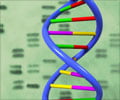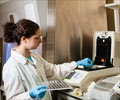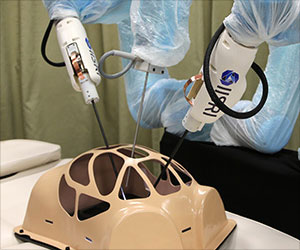Students who had their genome tested as part of a new medical school course on personalized medicine improved their knowledge of the class materials by an average of 31 percent.

"These results indicate that learning principles of human genetics is more powerful, and learning is more sustained, when exploring your own data," said Keyan Salari, MD, PhD, a former Stanford student who initially proposed the course, called "Genomics and Personalized Medicine." Salari, who is the lead author of the study, is now a urology resident at the Massachusetts General Hospital in Boston. The study will be published July 23 in PLOS ONE.
The eight-week elective course was the first in the country to give students in advanced-degree programs the option of personal genotyping as part of the curriculum. It was designed to teach them how the explosion of knowledge about genetics over the past 10 years could affect the treatment of patients. Since the course was first offered in 2010, the use of genetic testing in clinical care has grown.
The course, which is still being taught, was designed as a way to train future doctors and scientists in the skills necessary to use this new tool. The study, which was based on a pre- and post-course survey taken voluntarily by the majority of the students in the class, also showed that personal testing and the use of personal genotype data in the classroom did not appear to cause significant anxiety.
"This was a novel teaching approach," said Kelly Ormond, co-author of the study and associate professor of genetics. "There is always a lot of interest in whether personalized learning can influence education. ... What our study shows is that it might have benefits for some self-selected students, and is worthy of cautious consideration."
Initially controversial, the course was only approved after a campus task force met regularly for a year to debate the pros and cons of students undergoing genetic testing as part of a class. A number of concerns were raised, including the possible anxiety of learning they could be more susceptible to certain diseases, such as diabetes or Parkinson's. A number of safeguards were subsequently included as part of the course plan, including complete anonymity as to which students chose to undergo testing.
Advertisement
"I was curious about what stories were hidden in my genome, what health risks, what responses to drugs that might be predicted," Salari said. "For instance, I learned I might have a higher risk for age-related macular degeneration. That led me to read and learn a lot more about the genetics of that disease than I probably would have otherwise."
Advertisement
Study results also showed that 83 percent of students who chose to undergo testing were pleased with their decision. Seventy percent of those who underwent the testing reported a better understanding of human genetics on the basis of having undergone testing. The post-course survey also asked students who underwent the testing whether they made any behavioral changes based on the results, such as lifestyle changes or making appointments with doctors. Some initial behavior changes were reported. Yet in a previous study involving face-to-face interviews with the same students, no behavior changes were reported six months after the end of the course.
Source-Eurekalert















